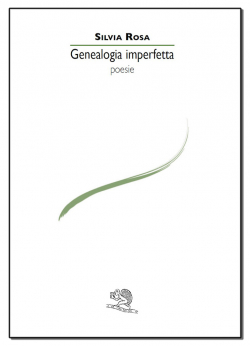Editorial
by Francesca Del Moro
It’s almost always the torturous and life-giving mix of pain and pleasure that makes love all the more passionate, that raises it “over the top”, as it happens in the poems selected for this issue. Cristina Bove indulges in a calm and sinuous dance with death in her willingness to receive the deepest wounds of feeling, those wounds that become a true cradle of love, its same raison d’être in the very short and visionary poem by Giovanna di Giacomo. With her soft and sensual images Claudia Zironi stages the unequal struggle with her jealousy whereas in the elegant lines by Paolo Polvani the relation between predator and prey shines with dark colours. Fortunately Raffaele Ferrario’s amusing parody of love poetry and love itself allows us to tone down all this torment through a liberating laughter.
Without jealousy
by Claudia Zironi
What river are you for her, will you
wet her with the same waters? I wish
I was her forefinger and the strip of skin
behind her ear that you will damp
with dew, and the mouth
that will receive the roaring fall
of your pleasure.
Will you give her the flower, the flower
I missed? I would love to be her smile
when you offer it to her, inebriated
by the fragrance and your caresses. I wish
I was the one who will receive it
without jealousy
on her grave.
Love bridal
by Raffaele Ferrario
he: “With love’s light wings did I o’erperch these walls, for stony
limits cannot hold love out, and what love can do, that dares
love attempt: therefore thy kinsmen are no stop to me.”
she: cooper’s mallet! haughty caoutchouc
duct of trumpets de Ficalba
hoisting your sails with a touch
you speed along wild in the beaded marsupium
the sweet albumen
that skims your cubbyhole
you wipe it and opened up
in the cupping urn you recoil
he: passionflower! flow of leathers
you sparkle inner snows
and debris of dawn crouch
in the gloss mills
the swollen slope skims
in trickles of delight
and the soaked apricots
swallow hiccups of warmth
she: “What satisfaction canst thou have tonight”
Lovers
by Giovanna Di Giacomo
Lovers can hold each other also through the edges of their wounds
and swaying come apart more and more
sew up more and more
enveloped by the halo of time
Cannibalistic love’s small bites
by Paolo Polvani
Come, she said with her voice dipped
in the deepest honey, come and I
will defrost your heart, I will melt
this eternal ice, I will launch
your self-esteem into orbit, into
exaggerate erection your ego, I will titillate
your vanity. In the meantime she looked
forward to your blood as to a hunting trophy,
a banner, and she whetted the blade.
Because love is not a matter for healthy
people, it instils in you the illusion
of a happiness to sip
but then it throws you down, it devours you.
Choose a blade
by Cristina Bove
A thin blade, winter love
precisely to make me die
twice sharpened, as to a couple of words
I have joined my life, without thinking
it was already gone.
I wanted words, silken words, love words
I wanted you to love _far from the body_
my heart as well, not only my mind.
I thought, I hoped, that those were
the right things, without the pain of a crazy game
that ended in nothing…
The evening hides your body, your face
I am left only with the other memory: the bitter jump
the precipice down a balcony.
I always believed in the impossible _this was my fault_
in revealing to you my weak point
the right point to drown
so choose a thin blade
precisely to make me die.
GENEALOGIA IMPERFETTA
Now I’ll tell you something strange, one of those
things that make you tell me I’m crazy:
I want to kiss all the women
you have loved, all of them.
As in a fairy-tale told by a dear voice, Silvia Rosa is fascinated by a wood, that here is a perfect archetype of life, of love’s mystery, of the unconscious. Among trees that recall a family tree (imperfect, as the title reads, because of the death of all fathers and the controversial relationship with the mother, who is one’s centre just like love), Silvia leaves footprints on the uncomfortable path of her thoughts. Enclosed between the wish to go back to her genuine and bare essence and a desire for love that results in dreaming of embraces, caresses, looks and brushing of hands, the poet recounts her troubled existential journey through vivid and rich images of outer spaces – both natural (the wood) and urban (Trieste and Buenos Aires, squares identified by their name) – and inner rooms (above all the bedroom, with the window evoking the outer world) whereas the bright colours are in conflict with the consistent aspiration to white, which symbolizes the two abovementioned wishes (dissolution in the snow and the petal softly brushing the cheek). Without avoiding a spatial arrangement (only) visually suitable for prose writing and sometimes interrupting the last sentence, Silvia’s flowing and refined, dense and melodious style sensually offers her lines to the reader, with whom the contact is constantly maintained through the use of the personal pronouns “I-you”.

